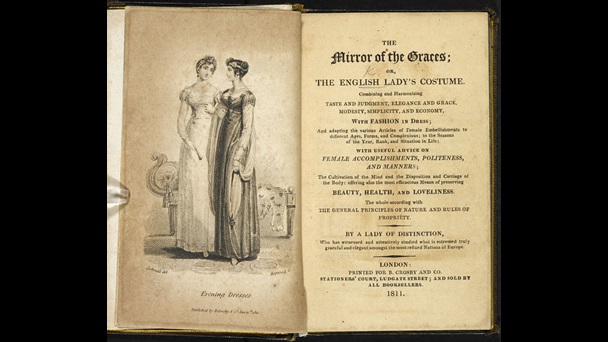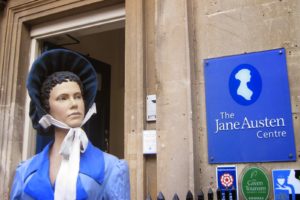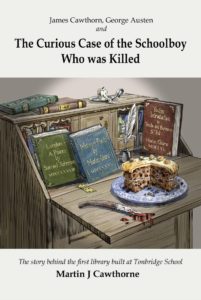“A woman must have a thorough knowledge of music, singing, drawing, dancing, and the modern languages, to deserve the word [accomplished]; and besides all this, she must possess a certain something in her air and manner of walking, the tone of her voice, her address and expressions, or the word will be but half deserved.”
Pride and Prejudice
The following is an excerpt from The Mirror of the Graces, by a Lady of Distinction, 1811, reprinted here with kind permission from The Jane Austen Centre.

Title page of The Mirror of the Graces; British Library
When so much has been said of the body and its accoutrements, I cannot but subjoin a few words on the intelligence which animates the frame, and of the organ which imparts its meaning.
Connected speech is granted to mankind alone. Parrots may prate and monkeys chatter, but it is only to the reasonable being that power of combining ideas, expressing their import, and uttering, in audible sounds, all its various gradations, the language of sense and judgment, of love and resentment is awarded as a gift, that gives us a proud and undeniable superiority above all the rest of the creation.
To employ this faculty well and gracefully, is one grand object of education. The mere organ itself, as to sound, is like a musical instrument, to be modulated with elegance, or struck with the disorderly nerve of coarsene vulgarity.
(more…)



 female authors of all time and not to mention the opportunity to see Mr. Darcy as much I want…. in the form of a mannequin. During July of this year I excitingly began working as a Tour Guide at the Jane Austen Centre, Bath and this was just the start of my Austen mania.
female authors of all time and not to mention the opportunity to see Mr. Darcy as much I want…. in the form of a mannequin. During July of this year I excitingly began working as a Tour Guide at the Jane Austen Centre, Bath and this was just the start of my Austen mania. As well as the bicentenary of Jane’s death, 2017 marks another anniversary on the Austen calendar, albeit of a more modest nature. Because it was ten years ago that the Jane Austen Gift Shop first began sending products to Jane’s fans the world over.
As well as the bicentenary of Jane’s death, 2017 marks another anniversary on the Austen calendar, albeit of a more modest nature. Because it was ten years ago that the Jane Austen Gift Shop first began sending products to Jane’s fans the world over.
 Jane Austen’s father, George Austen has many connections to the city of Bath.
Jane Austen’s father, George Austen has many connections to the city of Bath.